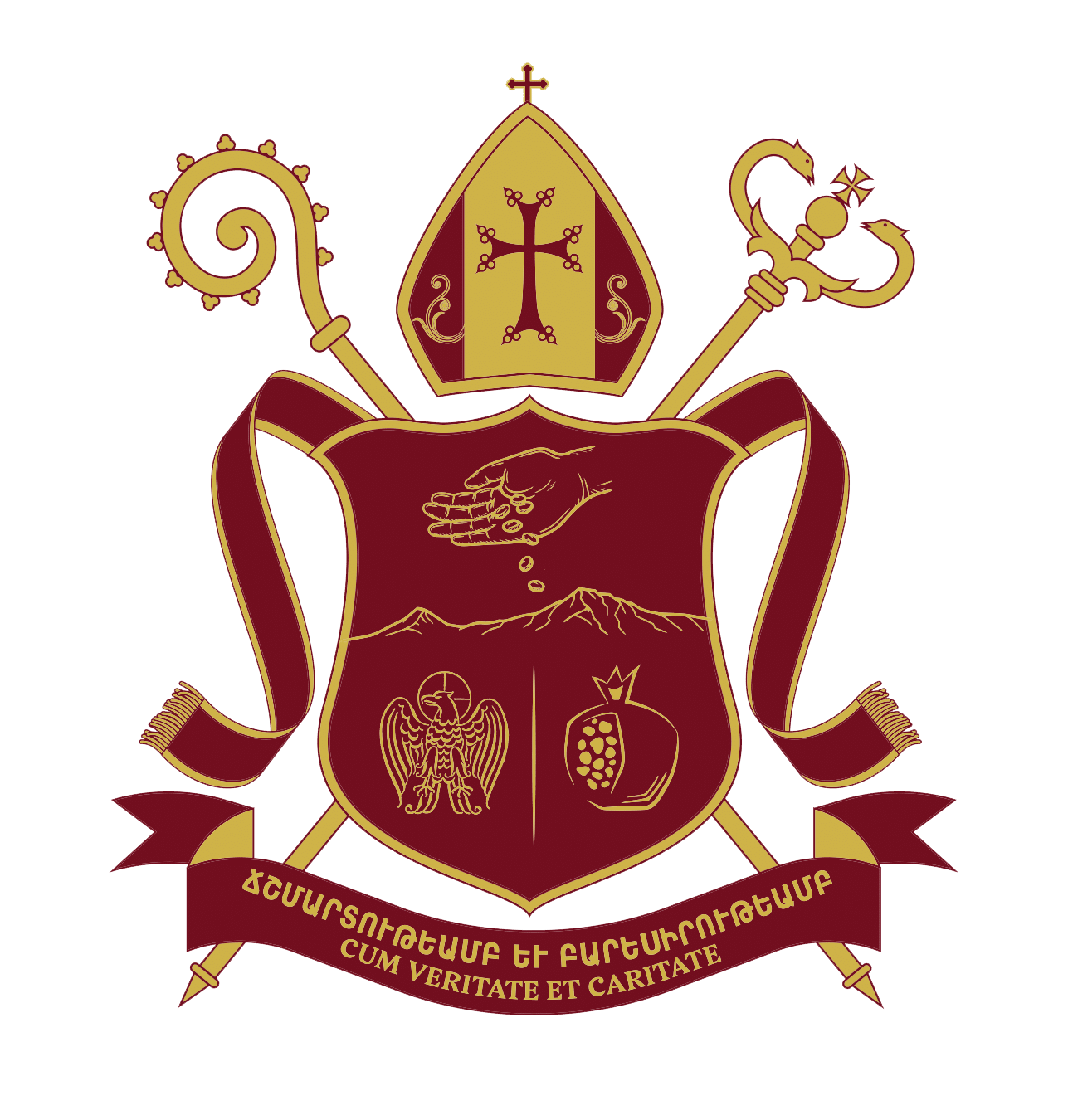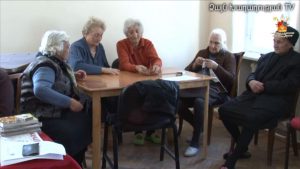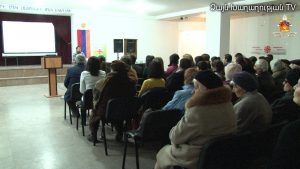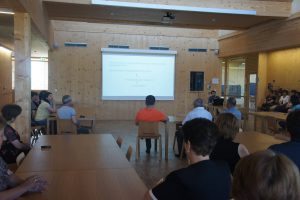- Challenge and Hope: Necessity of Development of ‘’New Constructive Communication’’ with Local Church Communication Services
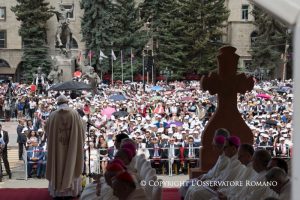
From Armenia, for the event of 51st World Communications Day, accepting the invitation of the Secretariat for Communication of the Holy See
I’d like to start this articles, or rather my proposal, with the words from the message of His Holiness Pope Francis on 51st World Communications Day, which I refer as the pivot for my article:
‘’I would like to encourage everyone to engage in constructive forms of communication that reject prejudice towards others and foster a culture of encounter, helping all of us to view the world around us with realism and trust’’.
The reforms initiated by Pope Francis and now ongoing in the communication system of the Holy See, are grounded on this mentality and are oriented towards opening new horizons for spreading our Lord’s Gospel in the modern world more effectively. The Secretariat for Communication founded in 2015 took the responsibility for the implementation of these reforms and the coordination of the work of mass communication of the Holy See. In his Motu Proprio on the establishment of the new Dicastery, Holy Father wrote:
‘’The current context of communications, characterized by the presence and development of digital media, by the factors of convergence and interactivity, demands both a rethinking of the Holy See’s information system, and a commitment to reorganize it…’’
On 4 May 2017, the Pope told the participants of the Plenary Assembly of the Secretariat for Communication: ‘’This Dicastery, which will mark two years on 27 June … is at the peak of its reform. We must not be afraid of this word. Reform is not just “whitewashing over things”: reform is giving another form to things, organizing them in another way… It is in full reform since it is a new reality that is taking steps that are now irreversible…’’.
I consider it of extreme importance that the new steps in the future continue with the same logic, which paved the way for the reforms: it means that the communication work must correspond to the possibilities which offer modern technology combining both technological and human resources. Combining the resources means also decentralization of organization of work using the principles of subsidiarity and participation, in accordance with the concepts of Catholic Social Teaching. Pope Francis has also mentioned about that many times when speaking about the reforms in Roman Curia, emphasizing the necessity of providing wider functions to the peripheral communities and subjects in management and organization activities, or in other words, the importance of ‘’going out to the peripheries’’ which is the indicator of a living and healthy Church, using His Holiness’ words.
In the same speech of 4 May 2017, he stressed the following:
‘’I ask you that the guiding criteria be apostolic, missionary, with special attention to situations of hardship, poverty, difficulty, with the awareness that these situations today must also be addressed with appropriate solutions. In this way it is possible to bring the Gospel to all, to make the most of human resources, without replacing the communications of the local Churches and, at the same time, supporting the ecclesial communities most in need’’.
Guided by this new or reformed mentality, it’s very important to develop within the Church an active network of mutual assistance and cooperation between the communication services of various local churches from all over the world and newly established Secretariat for Communication. Particularly, in the counties, where local communities find themselves in hard social conditions, catholic communication means need support and cooperation initiative from communication services working in more sustainable conditions, for the benefit of Gospel proclamation, especially to the poor communities.
It is a fact, that today the major events of the Catholic Church, the activity, encyclical letters and sermons of the Holy Father are available via various digital means and languages thanks to the protagonist media of the Holy See (CTV, Radio Vaticana, L’Osservatore Romano, etc…). Nevertheless, there are yet countries, communities, where this information is hardly available being only on the internet or not in adequate language. For example, in the catholic communities of Armenia, Georgia and Russia (the territory covers about 250.000 believers), such information is available only on the internet, moreover not in the local Eastern Armenian dialect. The Armenian Department of Radio Vatican broadcasts its content in Western Armenian, which is mostly difficult to comprehend for the local population. To provide them with information in their native dialect, in 2014, the official web-site of the Armenian Catholic Ordinariate was founded in Armenia, Gyumri, which indroduces articles and video reports on the events of the Catholic Church, activity of the Holy Father and on the inner life, history of the communities of Armenia, Georgia, Russia, in Armenian, Russian and English languages. This communication service is the only actor in these territories in that proper format and only for that purpose, but it lacks the needed provision with human and technical resources to develop and carry out the eneormous and very important work which it has undertaken.
It is a fact, that local church communication services need cooperation and assistance to become developing institutes not only for communicating with modern communication means the Gospel message and the word of the Holy Father to the forgotten peripheries of the world, but also for providing the believers being more oftener at the focus of attention of the Holy See, the clergy holding high ecclessial positions, the international community in general, with information on the peripheral communities and individuals. It is also a fact, that often a more sustainable communication service uses information provided by a less sustainable local service with great delight and even sometimes critically, without considering and analyzing through what difficulties a local service has had to pass to come up with this product, or how one can assist a local service to help it develop integrally thus making aslo ground for future perspective cooperation.
Paying more attention to local Church mass media, assisting, enriching them with possibilities to act independantly, developing human resources with experience exchange, training courses will undoubtedly foster also the center of the Church, will help to govern more effectively and reform the communication system of the Holy See, according to the logic of reforms adopted by the Holy Father and the statutes of the Sectretariat, which promote cooperation with the local church mass media (articles 11.3, 12.3).
In accordance with the mentality of the reform intitiated by Pope Francis, I propose to the Secretariat for Communication, to develop a strategy for promoting the cooperation with local church communication services, their assistance and participation in the common communication system of the Universal Church. It is necessary to work jointly using the potential and mental resources of all the subjects working in the given field, elaborating new projects corresponding to the technological novelties, logic of the social communication, cultural and spiritual needs of local and internation communities, projects which will open before us new horizons and hope for more fruitful evangelization. Only by walking jointly and supporting each other are we able to make our pace of advancement more in accord with the claims of the time and to put into practice Lord Jesus’ principle of One Church (”that all of them may be one”, John, 17,21).
In this regard, congratulating all the workers of mass communication means with the 51st World Communications Day, I’d like to pray and hope with the logic of the title and the positive content of the message of 2017 of His Holiness: ”Fear not, for I am with you» (Is 43:5): Communicating Hope and Trust in our Time”.
Fr. Hovsep Galstian
Editor of the web-site (http://armenianchurchco.com/ ) of the Ordinariate of Armenian Catholics in Armenia, Georgia, Russia and Eastern Europe
27 May 2017
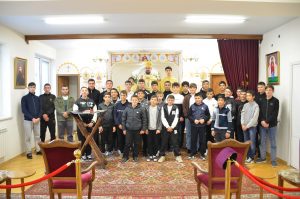 Trainings for Ministrants of Holy Liturgy
Trainings for Ministrants of Holy Liturgy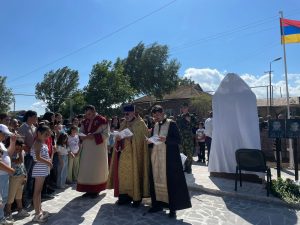 A Cross Stone Dedicated to the Heroes of Artsakh War Was Anointed in Mets Sepasar
A Cross Stone Dedicated to the Heroes of Artsakh War Was Anointed in Mets Sepasar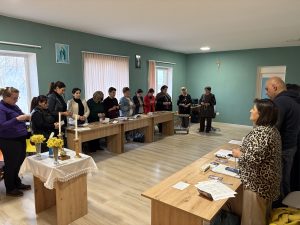 Days of Retreat. Holy Eucharist is the Missionary Pivot of the Legion of Mary
Days of Retreat. Holy Eucharist is the Missionary Pivot of the Legion of Mary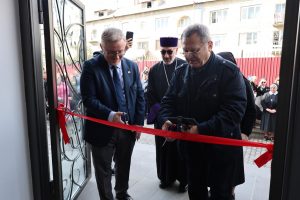 Another Cradle of Charity and Ministry: Inauguration of Diramayr Hayastani Youth Center
Another Cradle of Charity and Ministry: Inauguration of Diramayr Hayastani Youth Center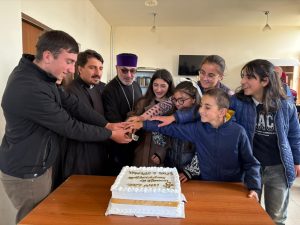 His Excellency Kevork Archbishop Noradounguian served a Holy Mass in St. Nshan church in Bavra
His Excellency Kevork Archbishop Noradounguian served a Holy Mass in St. Nshan church in Bavra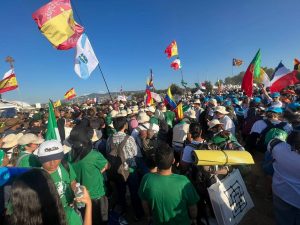 Summarizing Two Days: Jubilee Pilgrimage to Rome
Summarizing Two Days: Jubilee Pilgrimage to Rome
